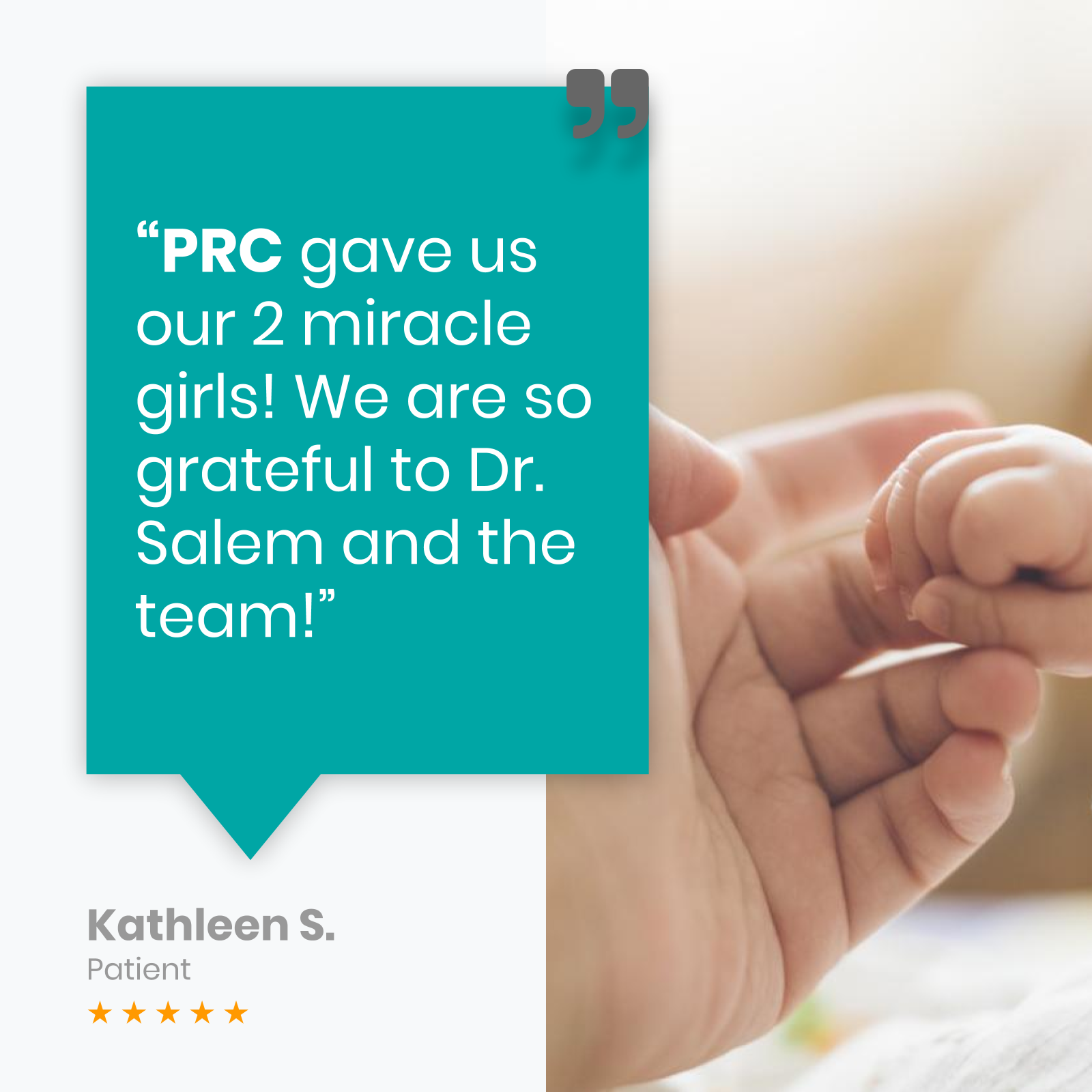Folic acid and essential vitamins play a pivotal role in supporting reproductive health for both men and women. Whether you’re planning for pregnancy or simply aiming to optimize your reproductive health, understanding the benefits of folic acid and fertility-boosting vitamins can make a significant difference.
Fertility is a journey that requires careful preparation. While reproductive technologies like in vitro fertilization (IVF) are becoming increasingly advanced and effective, one of the most powerful guarantors of successful conception is proper nutrition.
What Is the Role of Vitamins and Folic Acid in Fertility?
Understanding how much folic acid for fertility is needed and incorporating it into a daily routine can be a proactive step for assuring a healthy pregnancy.
What Is Folic Acid and Why It Matters for Fertility
Folic acid is a vital nutrient with significant benefits for fertility and overall health. According to the Centers for Disease Control and Prevention (CDC), folic acid is positively associated with lower rates of neural tube defects (disorders of the brain and spine) in newborns.
A 2022 study linked higher folate (vitamin B9) intake to a lower likelihood of anovulation, emphasizing its importance for reproductive health. For women, consuming 400 micrograms of folic acid daily, starting before conception and continuing through the first 12 weeks of pregnancy, is recommended.
Beyond pregnancy, folic acid supports the development of new cells, including those in the brain, blood, skin, hair, and nails, making it essential for overall health.
How Vitamins Support Reproductive Health
In addition to folic acid, other fertility vitamins like vitamin D, vitamin E, and omega-3 fatty acids work together to enhance hormonal balance, improve egg and sperm quality, and support a healthy reproductive system. These micronutrients are essential for preparing the body for conception and ensuring optimal reproductive function.
The Link Between Micronutrients and Conception
First, let’s discuss what micronutrients are.
Micronutrients are vitamins and minerals that, with the exception of vitamins D and K12, the body cannot synthesize on its own. The following vitamins and minerals are important micronutrients for reproductive health:
- Iron
- Calcium
- Vitamin A
- Vitamin B12
- Vitamin C
- Vitamin D
- Iodine
- Folate (Folic Acid)
- Zinc
Micronutrients are vital nutritional elements, but the human body requires only very small quantities. These nutrients enable the body to perform a variety of essential functions, such as producing hormones, enzymes, and building cells, for optimal health. Micronutrient deficiencies can lead to significant declines in overall health, brain function, and reproductive capacity.
However, it is important to note that micronutrient support should be guided by a healthcare professional. Overconsumption of micronutrients – remember, the body only needs very small amounts – can cause oxidative stress and other adverse effects.
Micronutrients contribute to reproduction in the following ways:
- Boost Fertility: Micronutrients help the body prepare for conception by supporting reproductive health in both men and women.
- Prevent Deficiencies: A lack of key nutrients can lead to fertility problems, so it’s important to ensure the body gets what it needs.
A 2018 report found that nutrients like folic acid, vitamin B12, and omega-3 fatty acids had a positive impact on female fertility in women attempting natural conception. For men, proper nutrients support sperm health, but over-supplementation can cause oxidative stress, potentially harming sperm quality.
Folic Acid for Fertility: How It Works
Research indicates that women who consume adequate levels of folic acid experience a shorter time to pregnancy compared to those with insufficient intake. This effect is attributed to folic acid’s role in supporting key reproductive processes, including hormone regulation and cell development, which are essential for successful conception.
Folic Acid for Female Fertility and Egg Health
Folic acid also contributes to improved egg health and menstrual regularity. Studies have shown that folic acid intake is associated with a lower incidence of ovulation irregularities, such as anovulation and ovulatory infertility.
Additionally, folic acid supports fertility treatments by enhancing follicular development, which is crucial for egg maturation and release. However, it is important to note that folic acid does not influence the quantity of eggs.
Folic Acid for Male Fertility and Sperm Quality
For men, folic acid supports sperm quality and overall reproductive health. Studies suggest that adequate folic acid intake can improve sperm count and motility, making it an essential part of male fertility vitamins.
How Much Folic Acid Is Needed for Fertility Support?
The recommended daily intake of folic acid for fertility is 400 micrograms, starting before conception and continuing through the early stages of pregnancy. Understanding how much folic acid is needed and incorporating it into a daily routine can help optimize reproductive health.
Key Fertility Vitamins for Men and Women
Proper nutrition plays a critical role in supporting reproductive health for both men and women. Key fertility vitamins can help address nutritional deficiencies that may contribute to fertility challenges.
However, it is essential to emphasize that nutritional support is only effective when the underlying cause of infertility is related to such deficiencies. A thorough evaluation by a healthcare professional is crucial to determine the appropriate course of action.
Fertility Vitamins for Women Trying to Conceive
For women, certain vitamins are particularly beneficial in supporting reproductive health. Folic acid is a key nutrient supporting menstrual regularity and follicular health. Vitamin B12 and omega-3 fatty acids are two key nutrients that play a significant role in hormone regulation and improving egg quality.
Vitamin B12 helps maintain hormonal balance, which is essential for regular ovulation and overall reproductive function. Omega-3 fatty acids, found in fish oil and certain plant sources, are known to improve egg quality and support healthy ovulation, making them an important component of fertility nutrition.
Male Fertility Vitamins That Support Sperm Health
Men need specific nutrients to support sperm health and overall reproductive function. Vitamins such as zinc, selenium, and vitamin C enhance sperm motility and production. These nutrients contribute to healthy sperm development, which is essential for a successful conception. Sperm motility, in particular, is a critical factor in male fertility.
Why Choose PRC for Fertility Medication Guidance?
Pacific Reproductive Center stands at the forefront of reproductive health, offering expert guidance on fertility medications and holistic care.
With a commitment to evidence-based practices, PRC provides personalized plans tailored to your unique needs, ensuring optimal outcomes for your fertility journey. We combine advanced medical expertise with compassionate support, making PRC a trusted partner in achieving diverse prospective parents’ reproductive health goals.
Treatments
Pacific Reproductive Center has been successfully aiding conception for over two decades. We optimize the conditions of fertility treatment to give every potential parent the greatest chance of successful childbirth.
Resources
We ensure that every patient fully understands their medical condition and treatment options available to them. We understand each patient is unique so we help guide you through the best option to support your own fertility journey.
Looking for the Best Fertility Clinic in Southern California?
Pacific Reproductive Center has four convenient locations throughout Southern California, making it easy for patients to receive quality care close to home. Each IVF fertility center has an on-site lab, next-generation services, and state-of-the-art equipment.
Whether in Glendale, Torrance, Irvine, or Corona, our world-class fertility doctors can help you build the family you’ve always wanted.
3720 Lomita Blvd, Suite 200 Torrance, CA 90505
116 E. Broadway, Suite 300 Glendale, CA 91205
10 Post Irvine, CA 92618
381 Corporate Terrace Corona, CA 92879




